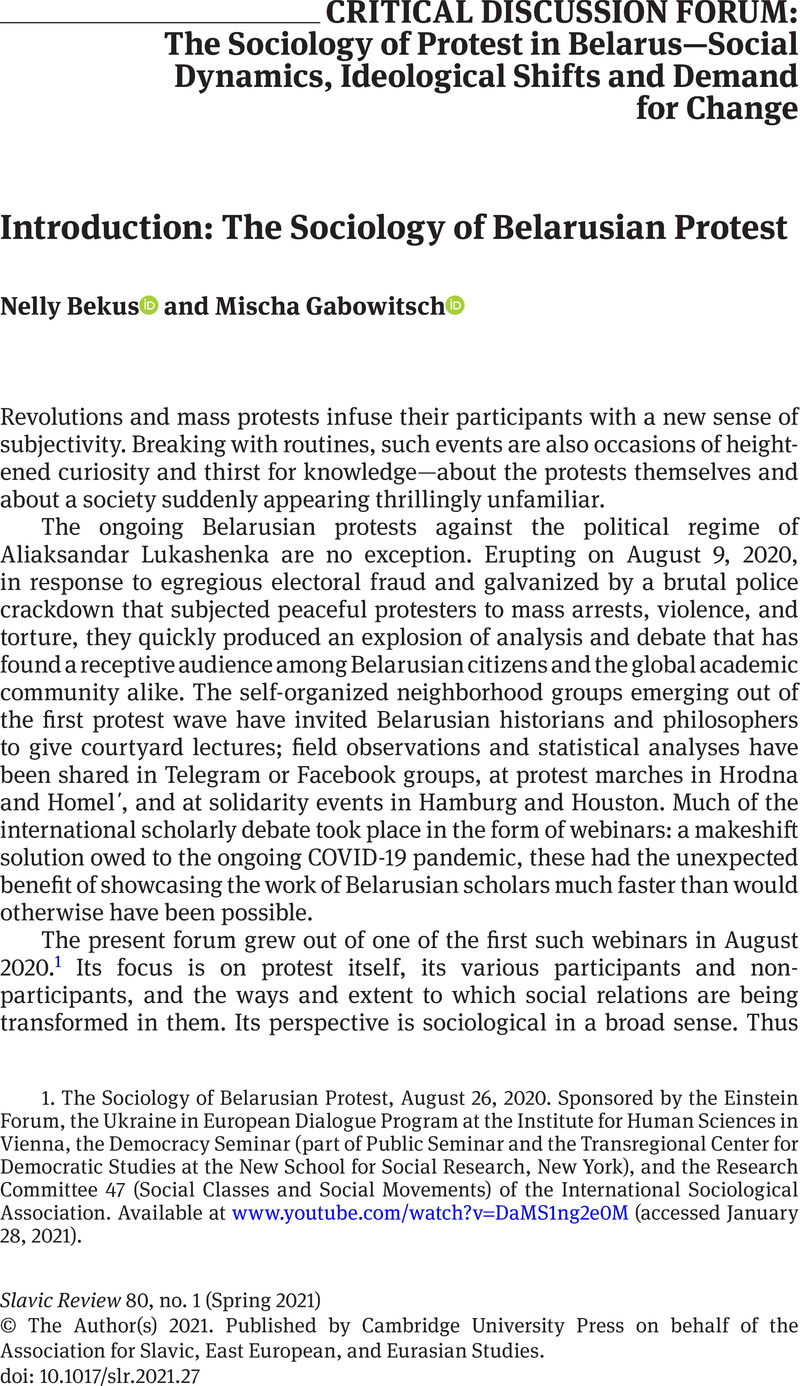Article contents
Introduction: The Sociology of Belarusian Protest
Published online by Cambridge University Press: 28 May 2021
Abstract

- Type
- Critical Discussion Forum: The Sociology of Protest in Belarus—Social Dynamics, Ideological Shifts, and Demand for Change
- Information
- Copyright
- Copyright © The Author(s), 2021. Published by Cambridge University Press on behalf of the Association for Slavic, East European, and Eurasian Studies
References
1. The Sociology of Belarusian Protest, August 26, 2020. Sponsored by the Einstein Forum, the Ukraine in European Dialogue Program at the Institute for Human Sciences in Vienna, the Democracy Seminar (part of Public Seminar and the Transregional Center for Democratic Studies at the New School for Social Research, New York), and the Research Committee 47 (Social Classes and Social Movements) of the International Sociological Association. Available at www.youtube.com/watch?v=DaMS1ng2e0M (accessed January 28, 2021).
2. Way, Lucan Ahmad, “Belarus Uprising: How a Dictator Became Vulnerable.” Journal of Democracy 31, no. 4 (October 2020): 17–27CrossRefGoogle Scholar.
3. The following articles appeared in Ab imperio no. 3 (2020): Ilya Gerasimov, “The Belarusian Postcolonial Revolution: Field Reports,” 259–72; Mark Tsinkevich, “Postkolonial΄naia revoliutsiia v postsovetskoi Belarusi,” 273–79; Irina Romanova, “Voina mirov: Znaki, simvoly, mesta pamiati,” 280–308; Sergei Zelenko, “Khronotop protestnogo plakata: Karnaval bez dialoga,” 309–22; Alexander Friedman, “Belarusian Revolution 2020: Jewish Perspectives,” 323–48; Maksim Rust, “Kak internet (pochti) pobedil rezhim,” 349–62.
4. “Macht statt Gewalt oder: Gewalt statt Macht Belarus: Schritte zur Freiheit oder: Repression, Schikane, Terror,” a special issue of Osteuropa 70, no. 10–11 (2020), at https://www.zeitschrift-osteuropa.de/hefte/2020/10-11/ (accessed March 9, 2021).
- 2
- Cited by


